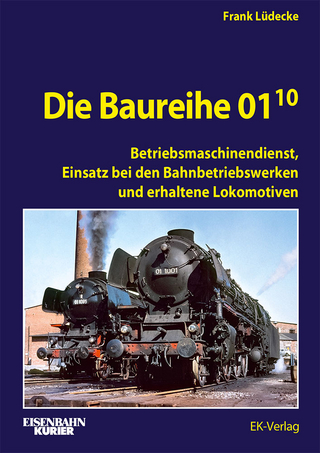
The Unusual and the Unexpected on British Railways
A Chronology of Unlikely Events 1948-1968
Seiten
2013
Fonthill Media Ltd (Verlag)
978-1-78155-234-6 (ISBN)
Fonthill Media Ltd (Verlag)
978-1-78155-234-6 (ISBN)
A comprehensive compilation of rare events during this fascinating period, this book covers all regions. It features steam (mainly), as well as diesel and electric motor power at work on scheduled and extraordinary services throughout the network. The chronology is supported by many contemporary photographs. There are lots of surprises!
Prior to the nationalisation of the railways in 1948, Britain's rail network was operated almost exclusively by four private companies. The 'Big Four' as they were called - the Great Western, the Southern, the London Midland & Scottish and the London & North Eastern - were not only nationalised in 1948, but consolidated into one large concern: British Railways. Each of the Big Four had built up its own system of working in its own geographic area with its own rolling stock, staff and livery. Thus, BR inherited a diverse mix, not only of physical plant, but of traditions and loyalties developed over generations. Additionally, management had to grapple with many and varied constraints in its desire to improve efficiency and create a nationally recognisable system. Also, cash was in short supply and much of the existing equipment was old, run down and in urgent need of attention. Further, all the major railway companies had a large number of restrictions as to which engines and stock could go where, even on their own system. Axle loading was often the deciding consideration and this governed which engine types could run on specific lines over which bridges and at what speed.
For example, LNER Pacifics were banned entirely from East Anglia. Also, loading gauges differed on the national infrastructure. All these considerations impinged on BR's desire to introduce a modern range of steam engines of its own, so that these would have the widest route availability. This, by and large, they successfully achieved, though in later years even the new BR diesels had more restrictions placed upon them than was originally envisaged. The Unusual and the Unexpected on British Railways: A Chronology of Unlikely Events 1948-1968 is an assiduous and personal trawl on how BR overcome such engineering incompatibilities and bureaucratic confusion on a national scale. This engaging tribute is a historical and rail engineering document, which despite plans and intentions to unite the country with a single operating network, shows how daunting such a restructuring was.
Prior to the nationalisation of the railways in 1948, Britain's rail network was operated almost exclusively by four private companies. The 'Big Four' as they were called - the Great Western, the Southern, the London Midland & Scottish and the London & North Eastern - were not only nationalised in 1948, but consolidated into one large concern: British Railways. Each of the Big Four had built up its own system of working in its own geographic area with its own rolling stock, staff and livery. Thus, BR inherited a diverse mix, not only of physical plant, but of traditions and loyalties developed over generations. Additionally, management had to grapple with many and varied constraints in its desire to improve efficiency and create a nationally recognisable system. Also, cash was in short supply and much of the existing equipment was old, run down and in urgent need of attention. Further, all the major railway companies had a large number of restrictions as to which engines and stock could go where, even on their own system. Axle loading was often the deciding consideration and this governed which engine types could run on specific lines over which bridges and at what speed.
For example, LNER Pacifics were banned entirely from East Anglia. Also, loading gauges differed on the national infrastructure. All these considerations impinged on BR's desire to introduce a modern range of steam engines of its own, so that these would have the widest route availability. This, by and large, they successfully achieved, though in later years even the new BR diesels had more restrictions placed upon them than was originally envisaged. The Unusual and the Unexpected on British Railways: A Chronology of Unlikely Events 1948-1968 is an assiduous and personal trawl on how BR overcome such engineering incompatibilities and bureaucratic confusion on a national scale. This engaging tribute is a historical and rail engineering document, which despite plans and intentions to unite the country with a single operating network, shows how daunting such a restructuring was.
Dave Peel taught mathematics for thirty years in Leeds, including a year on a Commonwealth Teacher Exchange, before retiring to Dorset. He has been a lifelong railway enthusiast and travelled worldwide in search of steam locomotives. Peel has spent considerable time researching four books on diverse topics. Locomotive Headboards - The Complete Story (2006) was followed by Locomotive Testing - A Non-Technical Overview and Starlight Specials - An Overnight Success.
| Erscheint lt. Verlag | 6.6.2013 |
|---|---|
| Zusatzinfo | 64 black and white photographs |
| Verlagsort | Toadsmoor Road |
| Sprache | englisch |
| Maße | 172 x 248 mm |
| Gewicht | 783 g |
| Themenwelt | Natur / Technik ► Fahrzeuge / Flugzeuge / Schiffe ► Schienenfahrzeuge |
| ISBN-10 | 1-78155-234-7 / 1781552347 |
| ISBN-13 | 978-1-78155-234-6 / 9781781552346 |
| Zustand | Neuware |
| Haben Sie eine Frage zum Produkt? |
Mehr entdecken
aus dem Bereich
aus dem Bereich
St. Moritz – Zermatt : die Traumreise im langsamsten Schnellzug der …
Buch | Hardcover (2023)
Verlag Berg & Tal
CHF 25,90
Betriebsmaschinendienst, Einsatz bei den Bahnbetriebswerken und …
Buch | Hardcover (2024)
EK-Verlag
CHF 68,90
Buch | Hardcover (2023)
GeraMond (Verlag)
CHF 41,90


